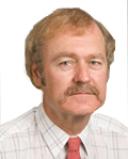
Suicide
Anatomy of a Smear Campaign, Installment No. 2
WashPost reporter goes too far
Posted January 24, 2013
Melinda Henneberger has gone too far. For the better part of two years, the Washington Post columnist has waged a smear campaign of innuendo and distortion against the University of Notre Dame. In short, she blames the school for the tragic suicide of a 19-year-old girl who had an unpleasant interaction with one of our students. The longer backstory:
On September 1, 2010, a student at Indiana’s St. Mary’s College, Elizabeth Seeberg, reported to security police at the neighboring University of Notre Dame that she had been a victim of “sexual assault” in a dormitory room on the latter campus the night before. Miss Seeberg, who at the time was being treated with drugs for psychological problems, died of a drug overdose on September 10, 2010. The death was ruled a suicide. Following that, the local county prosecutor decided against charging the accused Notre Dame student. Then, over the subsequent 18 months, the Chicago Tribune and National Catholic Reporter ran a sensationalized series of articles about the tragedy. (NCR featured an article by Ms. Henneberger.) This corpus of commentary has now been joined by Henneberger’s Post item of December 5, 2012.
An exposé detailing Henneberger’s misleading earlier reporting on the matter, which should be sufficient to discredit her latest column, is found at my own previous Psychology Today website article. Highlights, entirely lifted from publicly available information and expressed as delicately as possible: (1) The Seeberg girl was consensually alone in a football player’s dorm room late at night. (1a) According to the Tribune of December 16, 2010, she remained there in the room on a campus not her own, again volitionally, for some time after the alleged incident occurred. (2) Even if Elizabeth Seeberg had lived, there likely would be no criminal case because the issue would then have been only one person’s word against another’s. (3) Bolstering the preceding point, significantly, is that the accuser in this instance had a history of psychiatric problems, actually among the most serious possible as confirmed by her subsequent demise. (4) It is very telling that the local prosecutor dropped this case in short order, declaring that the facts supported the accused. Ultimately, it became only a case of “touching above the waist,” contrary to the imagery readers may have received from reporter Henneberger. (If you don’t like this recitation, then blame the Chicago Tribune, my primary source.)
For now, specific deconstruction of the Henneberger December 5 text should decisively undercut her credibility and reassure the audience that Notre Dame is not culpable in the incident as alleged. I offer the following counterpoint as a Notre Dame alumnus, faculty member, and admirer.
•Notice how circumspect Melinda Henneberger is with her December 5 insinuations and allegations, relying on locutions such as “believe as I do” and “what I believe”? There is a legal reason for that tactic. As long as Henneberger skirts around a definite (and false) accusation, leaving it an expression of belief or opinion, she is shielded from libel liability. Yet she deftly leaves uninitiated readers with an impression of that more definite accusatory status and creates a charged atmosphere.
•A related tendency on display in Henneberger’s latest column is her use of more illegitimate rhetorical devices. One, referring to Notre Dame “predators” is an example of the logical error of begging the question because that premise not only has not been established, but probably never can be in this case. Similarly, reference to “school officials who’ve whispered misleadingly . . . smearing” is also an unsupported assertion, and even unsupportable, unless Henneberger (and the rest of us) can have complete knowledge of the alleged incident.
•When the literal truth content of Henneberger’s prose is distilled, a clearer picture emerges. Here are the undisputed basics:
“[Seeberg] suffered from depression.” “Neither man will ever be found guilty in court. . . . Neither was charged with a crime.” “No criminal complaint was ever filed.” (Yes, Henneberger raises old accusations against a second Notre Dame student.)
These are among the few established facts, according to Henneberger herself, that are known about the matter at issue. Melinda Henneberger did one thing right by reporting them, though. Excerpted in bold relief they provide an impression contrary to the one the columnist creates overall by interlacing with her subjectivity and innuendo. Do we gather what’s going on here?
•Henneberger repeats her ethical lapse by constructing a misleading timeline, claiming that Notre Dame Security committed an inordinate ten- or 15-day delay between the deceased girl’s September 1, 2010 police report and their own follow-up—insinuating that the sluggishness contributed to the suicide. However, the timeline Henneberger downplays is that Miss Seeberg’s final, formal, and revised written report was not filed until September 6, while campus police began the effort to interview the accused on September 9. But, obviously, a three day interval (actually about 2 ½ days before attempted interview, based on the reported record) does not make for as good a hatchet-job story as ten or 15 days. Substantively, a legitimate reason for more delay by ND Security than may seem natural to the layman was the reconciling of discrepancies between the accuser’s two submitted statements. Another: The local prosecutor’s office imposed the delay.
See what I mean about Henneberger’s questionable compositional strategy? This has been a sampling of the writer’s deceptive content. Another revealing strike against her, perhaps noticed by Post readers, is how she sneers, in print, at the standard of “innocent until proven guilty.”
•Overall, consider again Henneberger’s own words. There was “a seven-month probe” by the U.S. Department of Education, Notre Dame Security “investigated [Seeberg] herself quite thoroughly,” “Notre Dame did convene a closed-door disciplinary hearing,” the accused “was found ‘not responsible,’” and finally “no criminal complaint.”
Moreover, think about it. As strict as Notre Dame is known to be with discipline, often criticized for being too strict, does Melinda Henneberger’s account ring true? Everything you know about the school is to the contrary. Henneberger says don’t believe your lying eyes, believe her—despite fragmentary evidence, presented deviously.
And who am I to know anything about this? No one in particular. I merely followed the sad story in the public media and report the content to you cleanly and prosaically, in contrast to the Henneberger muckraking approach. “Just the facts” here, that is, and the overriding fact is that we don’t know many facts about the Seeberg case, despite all the Henneberger verbiage. I certainly don’t pretend to know what happened to poor Miss Seeberg. I can only demonstrate that Melinda Henneberger doesn’t either, and that her “reporting” cannot rightfully be given credence.
For once, my own subjectivity: Henneberger appears, based on all evidence, to be developing a Captain Ahab (or Queeg)–like obsession, a bias interfering with her fairness, to say the least. A challenge to Post and PT readers: After digesting this exchange, what can we say that Melinda Henneberger really knows about the incident in question? What do any of us know? From inspection of all her copy, it seems to be very little. Yet Henneberger sure works hard to spin you to a contrary view, doesn’t she? Why? To this point, therefore, I have far more basis to cite her for engaging in smear and institutional character assassination to advance her own career than she has for her uneven claims against a renowned university. If supporting evidence exists, it has not been adduced. Hence, my effort to shed light amidst Henneberger heat.



